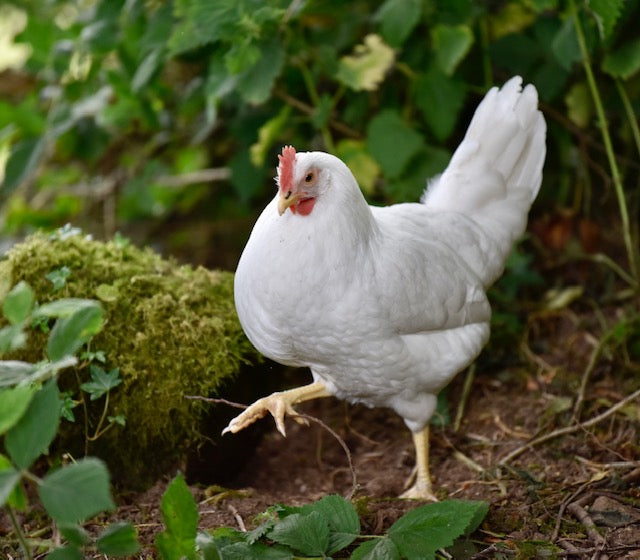
Just how free are "free range" eggs?
Share
Many of us uncompromisingly buy "free range" eggs for our belief in their ethics. However, as highlighted by the Guardian newspaper in 2017 the term free range could be construed as somewhat misleading to the consumer. Having grown up with access to eggs from free roaming chickens, (i.e those that have no boundaries but daily access to large strips of land to forage) this idea that many of us conure up to mean "free range" is sadly at odds with the reality of the term. Although sometimes necessary for health reasons, it is interesting that a hen can still be classed as "free range" if it has been kept inside for up to 12 weeks.
According to the RSPCA, legal requirements for free-range eggs in the UK ensure a minimum amount of space and litter for the hens: no more than nine hens a square metre, 10cm of feeder a bird and one drinker for 10 birds. When you picture 9 birds in a square metre you realise that it is a stretch to incorporate the term "free" into their living conditions, particularly when there are up to 16,000 hens in a flock. Compassion in World Farming (CIWF) goes further, with a guide to Compassionate Food, grading various animal-welfare schemes out of 100. British Lion Free Range gets 33 on the scale, while RSPCA Assured gets 63. If you can find organic eggs with a Soil Association label, you’re up to 70 points and happier hens.
Today there are so many enthusiast hen owners dotted around the country who sell their excess eggs from their homes, so for those that don't live in a city, it is feasible to buy truly "free range" eggs that don't cost the earth. Unsurprisingly, these eggs not only taste better but also have a higher nutritional value.
Let's work together to be conscientious consumers. Our choices make a difference to the planet.
According to the RSPCA, legal requirements for free-range eggs in the UK ensure a minimum amount of space and litter for the hens: no more than nine hens a square metre, 10cm of feeder a bird and one drinker for 10 birds. When you picture 9 birds in a square metre you realise that it is a stretch to incorporate the term "free" into their living conditions, particularly when there are up to 16,000 hens in a flock. Compassion in World Farming (CIWF) goes further, with a guide to Compassionate Food, grading various animal-welfare schemes out of 100. British Lion Free Range gets 33 on the scale, while RSPCA Assured gets 63. If you can find organic eggs with a Soil Association label, you’re up to 70 points and happier hens.
Today there are so many enthusiast hen owners dotted around the country who sell their excess eggs from their homes, so for those that don't live in a city, it is feasible to buy truly "free range" eggs that don't cost the earth. Unsurprisingly, these eggs not only taste better but also have a higher nutritional value.
Let's work together to be conscientious consumers. Our choices make a difference to the planet.
